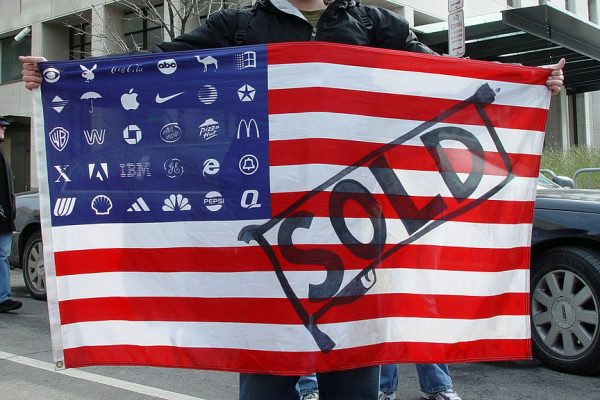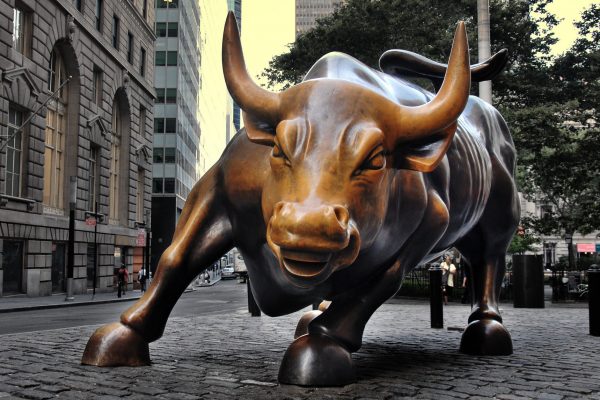Corporate greed did not cause the coronavirus, but it did create an economy extremely vulnerable to crisis—one that will only make it harder to fight the economic consequences of this pandemic. Managers and wealthy shareholders have extracted trillions of dollars to their own benefit while claiming they could not raise wages or pay sick leave. Now we are paying the price.
Managers and wealthy shareholders have extracted trillions of dollars to their own benefit while claiming they could not raise wages or pay sick leave. Now we are paying the price.
It is a good thing that the $2 trillion bailout package enacted last week will keep any company receiving federal aid from using those funds for shareholder payments: it bans stock buybacks and dividends on common stock for the duration of government aid, plus a year thereafter. In this, the bill signals a major advance in public acknowledgment that large corporations prioritized short-term wealth creation for shareholders over business resilience. Democrats pushed for restrictions on shareholder payments and executive compensation to ensure that loans are focused on keeping workers employed. Even Trump demanded “that there be no stock buybacks. . . . I don’t want them taking hundreds of millions of dollars and buying back their stock, because that does nothing.” Such restrictions are also useful to sell the bailout to the American people.
But no legislation can get back the $6.3 trillion that U.S. companies spent on open-market stock buybacks over the last ten years—funds that could have been invested in productivity, used for a cash cushion, or for fair wages and benefits. And in fact, the bailout bill’s restrictions are not as forceful as they seem, because companies aren’t likely to pursue buybacks or offer dividends in a crisis period anyway. The real question is whether the political will to rethink the rules that govern the U.S. corporation will endure once the immediate crisis moment has passed. We grappled with those issues in a forum in these pages last fall. As I said then, “corporations are creatures of public permission. This means that we—the public—can choose the rules that govern how corporations interact with their stakeholders.”
Those trillions spent on buybacks artificially raised share prices for the benefit of share-sellers—often the very corporate managers who decide when to execute the buybacks. Once corporate funds are spent on buybacks, they are not available as retained earnings or for future labor compensation. What’s more, when the market crashes, the “value” the buybacks created is lost: only those who sold shares in time made money. Corporate insiders—the ones who know buybacks are happening before the activity is disclosed to the public—are selling their own shares twice as often when buybacks are underway.
Corporate leaders try to justify these practices using the corporate governance framework known as shareholder primacy: the idea, popularized by Milton Friedman fifty years ago, that the entire purpose of a corporation is to make money for shareholders. This conceit, justified by agency theorists and codified in Delaware corporate law, has been challenged by workers, policymakers, and scholars for years. It is obvious that shareholders do not create corporate value themselves—without workers, customers, suppliers, the natural world, and the broader public, corporations could not produce and sell goods and services. It is also obvious that shareholders, who buy and sell shares through financial institutions and usually have no idea what shares they hold, are not the best stewards for determining a company’s future. As corporate executives came to be paid more and more in shares and stock options, they were given more and more incentive to juice share prices as much as possible, rather than ensuring business resiliency.
The predictable result of this speculative mania is clear from history: when the economic bubble bursts, whether due to a pandemic or a mortgage meltdown, workers get laid off and the economy spirals downhill.
To combat these inequities and ensure business resiliency when the peak of this crisis passes, we need to end fifty years of shareholder primacy and rebalance power inside large corporations. We can accomplish this through straightforward reforms:
- Make corporate decision-makers responsible to multiple groups of stakeholders—workers, customers, suppliers, the natural world, and the public. A change to corporate fiduciary duty already exists in benefit corporation law. Companies should no longer be able deny workers paid sick leave and fair compensation or charge exorbitant prices for lifesaving medical supplies in the name of maximizing shareholder wealth.
- Require corporate boards to include worker representatives, as one mechanism to rebalance power within corporations. One token worker representative is not enough: worker representation needs to be sufficient to have power in the boardroom. (I lay out how worker representation could work in a recent working paper.)
- Ban stock buybacks. As even Trump now understands, stock buybacks are just a way for insiders and speculators to make money without improving the future productivity, or resiliency, of the actual business. Because stock buybacks manipulate the market price for a company’s stock, the practice used to be functionally impermissible, before the Reagan administration created a safe harbor for stock buybacks in 1982. They should be banned as market manipulation.
- Reform labor law to enhance collective bargaining. Workers need collective power to have a chance at fair compensation. Projects such as Clean Slate and proposals from labor law experts have laid out the best comprehensive path forward.
All of these reforms are popular with the American people. Recent polling by Data for Progress showed strong support across the political spectrum for ensuring that corporate decision-makers are responsible to all stakeholders, for ending stock buybacks, and for giving workers a seat on corporate boards. Even roughly a third of conservative-identified voters supported transforming corporate governance. It is likely that support for these reforms will only deepen as the economic pain spreads and we watch more and more companies ask for public bailouts.
The predictable result of this speculative mania is clear from history: when the economic bubble bursts, workers get laid off and the economy spirals downhill.
Millions of American workers are going to suffer unnecessarily because wealthy companies such as Walmart and Marriott have spent billions of dollars on stock buybacks and racked up high levels of debt. Working families do not have safety nets because they have been underpaid for years, and are now relying on the federal government to come through with guarantees for paid sick leave and income support.
This moment requires immediate medical and economic aid for all Americans. It’s also a reminder that the rules that structure corporate decision-making determine who has the resources to weather a crisis. We must put an end to shareholder primacy now, both to improve business resiliency and to distribute economic gains more fairly.









